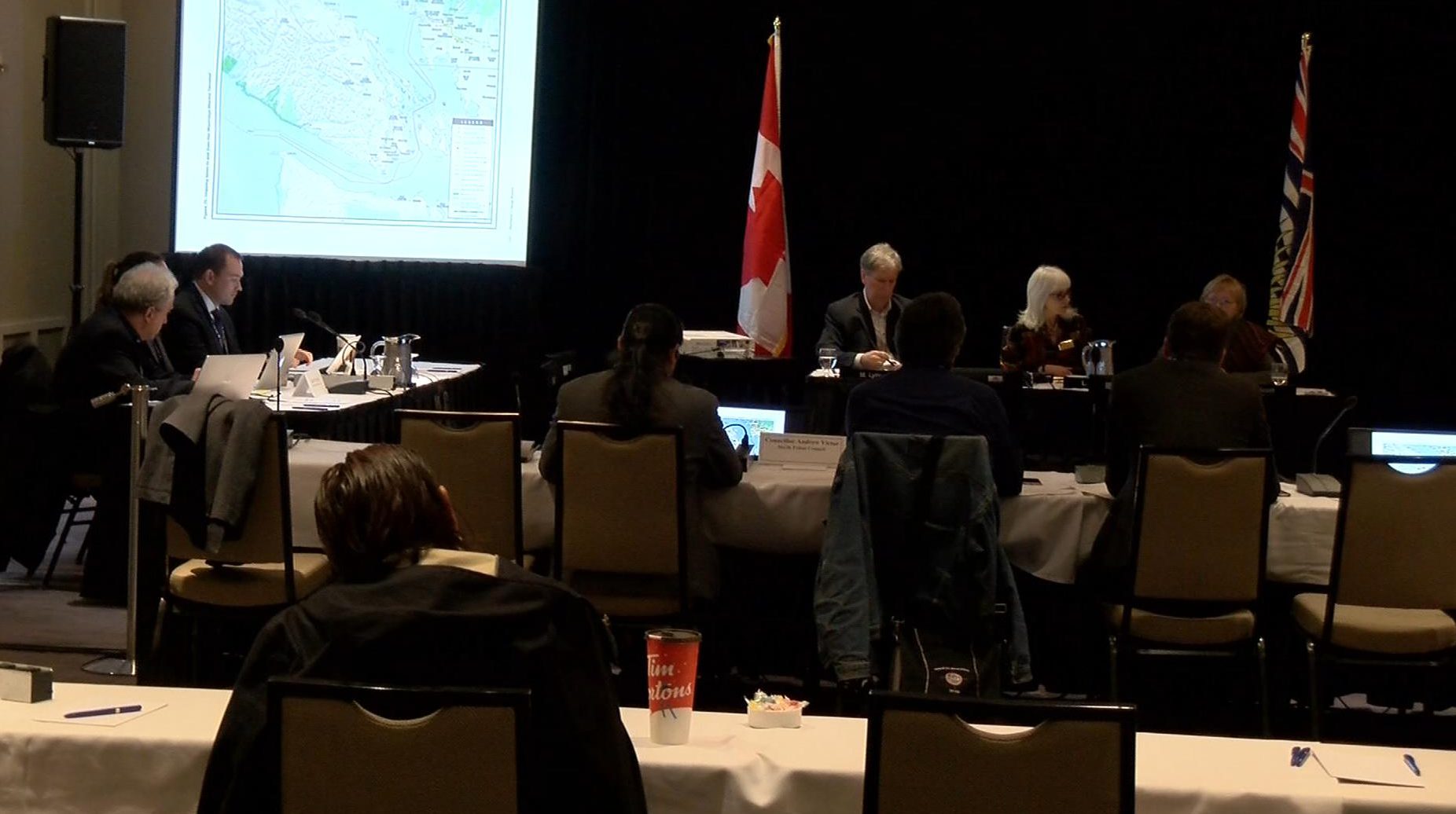
WATCH: The risk posed by increased tanker traffic if the Trans Mountain pipeline expansion goes ahead is the focus of National Energy Board hearings in Victoria. Tess van Straaten reports.
The National Energy Board is holding ‘reconsideration’ hearings in Victoria this week, as the Trudeau government tries to push the controversial Trans Mountain pipeline expansion forward.
The federal government bought the existing pipeline, which runs from Alberta to Burnaby, from Kinder Morgan for $4.5 billion earlier this year.
But the endangered Southern Resident Killer whales and the impact of increased tanker traffic in the Salish Sea are one of the main arguments against the contentious expansion.
“We know that there are impacts already from tanker traffic on the killer whale population and they have to consider their well-being and they can’t just deny their is no impact on the killer whales,” says Chief Don Tom of the Tsartlip First Nation.
The National Energy Board (NEB) hearings with First Nations, which started in Calgary last week, are looking at the potential marine impacts.
This, after the Federal Court of Appeal quashed the original approval of the controversial project, saying Canada didn’t adequately consult with First Nations or properly consider the marine environment.
“In the first set of ‘consultations’, many First Nations and the Métis community were not happy with the outcome,” says Chief Ernie Crey of the Cheam First Nation in the Fraser Valley.
The National Energy Board says it received almost 150 applications for intervener status. Of those, 117 applications were granted and the majority were interveners in the original hearings.
From the declining Fraser River salmon run and starving orcas to the risk of a catastrophic spill, many interveners are raising serious environmental concerns.
“Since the discussion on this project started, a tanker in Vancouver Harbour spilled 40,000 litres of bunker fluid and it took 8 hours for anyone to respond,” says Chief Tyrone McNeil Sto:lo Tribal Council. “That’s not a good sign.”
But 44 First Nations along the pipeline route have agreements in place and hope to benefit if the project goes ahead.
“What we were hoping for is opportunities for our communities, which are populated with young people now forming families in need of job training, jobs and earnings from a project like this,” says Chief Crey, who supports the project.
Yet most Vancouver Island First Nations say the risk is far bigger than the potential reward.
“We’re on the right side of history when it comes to this pipeline project and I believe it’s dead in the water,” says Chief Tom.
The hearings will move to Nanaimo next week.





